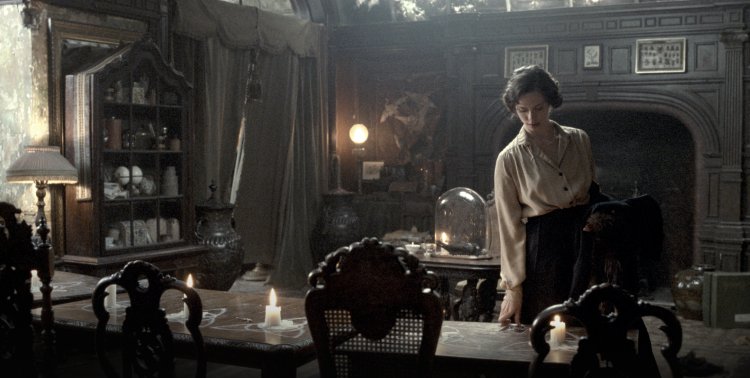'The Awakening' (2011)
Welcome to our in-depth exploration of the critically acclaimed movie "The Awakening" (2011). In this captivating piece of cinema, director Nick Murphy takes us on a spine-chilling journey into the realm of supernatural mysteries and psychological suspense. As we delve into the intriguing plot, meticulously crafted characters, and hauntingly beautiful cinematography, we will unravel the secrets that make "The Awakening" a true masterpiece in its genre.

Unraveling the Plot
"The Awakening" is set in post-World War I England, where the traumatized nation is grappling with the aftermath of the war. The story revolves around Florence Cathcart (played by Rebecca Hall), an intelligent and skeptical writer who exposes fake supernatural phenomena. When she is summoned to investigate eerie occurrences at a boarding school, her skeptical beliefs are put to the test. As Florence delves deeper into the mysteries surrounding the school, she discovers a complex web of secrets, deceit, and a haunting history that lingers within its walls.
Atmospheric Cinematography: A Visual Delight
One of the standout features of "The Awakening" is its mesmerizing cinematography, which beautifully captures the haunting atmosphere of the era. The film utilizes a muted color palette, evoking a sense of melancholy and unease. The meticulous attention to detail in recreating the post-World War I setting transports the audience back in time, immersing them in the hauntingly atmospheric world of the film.
Compelling Performances: Bringing Characters to Life
"The Awakening" boasts a stellar cast whose performances breathe life into the complex characters that inhabit the story. Rebecca Hall delivers a tour de force performance as Florence Cathcart, capturing her intelligence, vulnerability, and eventual transformation as she unravels the mysteries of the boarding school. Dominic West and Imelda Staunton also shine in their respective roles, adding layers of depth to the narrative.
A Multilayered Tale: Blending Supernatural and Psychological Elements
What sets "The Awakening" apart from conventional horror films is its skillful blending of supernatural elements with psychological exploration. The movie navigates the fine line between the tangible and the intangible, expertly toying with the audience's perceptions of reality. As Florence unearths the school's secrets, the film delves into themes of grief, loss, and the human mind's capacity to deceive itself.
Themes Explored: The Haunting Power of Guilt and Loss
"The Awakening" goes beyond its supernatural facade to explore profound themes that resonate with audiences. The film delves into the lingering effects of guilt and loss, offering a poignant reflection on the human condition. It invites viewers to contemplate the haunting power of unresolved emotions and the lengths one may go to find solace or redemption.
Critical Acclaim: Praise for a Haunting Masterpiece
Since its release, "The Awakening" has garnered critical acclaim for its captivating storytelling and exceptional craftsmanship. The film's ability to seamlessly merge elements of horror, mystery, and drama has been praised by both critics and audiences alike. Its thought-provoking narrative, coupled with outstanding performances, has solidified its place as a modern classic in the genre.
Also Check Sean Penn calls for a boycott of the Oscars!
Conclusion: A Cinematic Gem
"The Awakening" (2011) is a haunting masterpiece that mesmerizes audiences with its atmospheric cinematography, compelling performances, and multilayered storytelling. By skillfully blending supernatural and psychological elements, director Nick Murphy crafts a film that transcends the boundaries of the horror genre. Its exploration of guilt, loss, and the human psyche adds depth to the chilling plot, leaving viewers with lingering questions and a sense of awe.





























